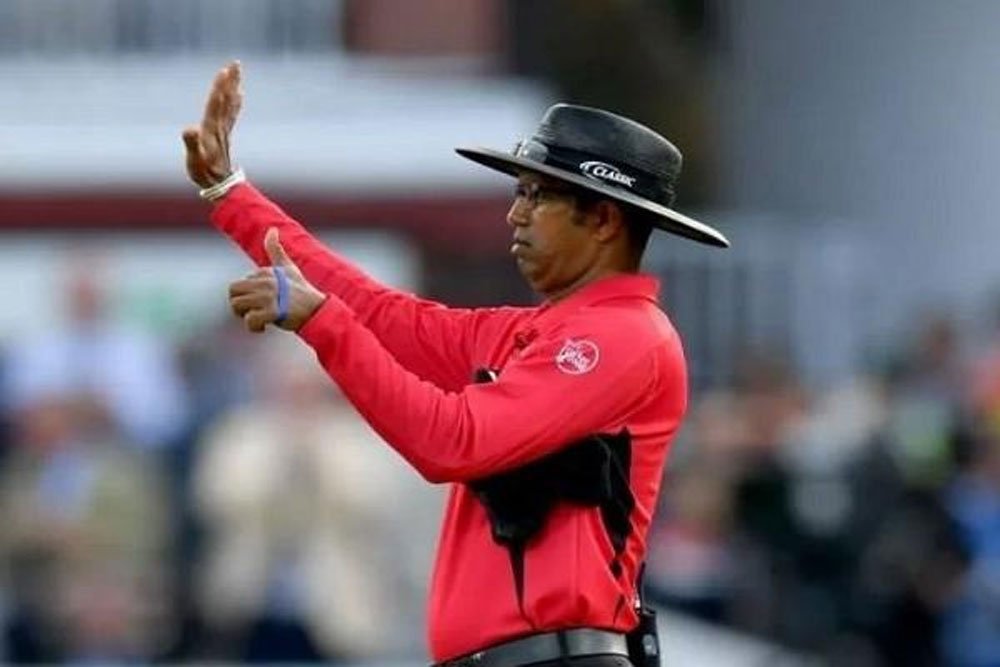ICC has implemented a timeout rule for bowlers as Penalties for delayed over starts, ensuring that the game remains dynamic. If a bowler takes more than a minute to begin a new over after the completion of the previous one, and this happens thrice, the bowling team will face penalties.

Cricket, a sport known for its traditions, is witnessing a transformative moment as the International Cricket Council (ICC) introduces groundbreaking changes. The recent modifications, announced after the 2023 One Day International (ODI) World Cup, aim to enhance the pace of the game and add excitement. In a move to keep the momentum alive, ICC has implemented a timeout rule for bowlers, ensuring that the game remains dynamic.
Penalties for Delayed Over Starts
The highlight of the changes is the penalty system for delayed over starts. If a bowler takes more than a minute to begin a new over after the completion of the previous one, and this happens thrice, the bowling team will face penalties of 5 runs. This rule will be applicable in both One Day Internationals (ODIs) and Twenty20 (T20) formats post the 2023 World Cup.
Post the trial period, the ICC aims to permanently implement the timeout rule to keep the game’s pace swift and engaging. This decision was made during a board meeting of the International Cricket Council.
Starting from December 2023 to April 2024, ICC has agreed to introduce a stop clock based on trials for Men’s ODIs and T20s. This clock will be utilized to reduce the time taken between overs, contributing to a more time-efficient cricketing experience.
In a statement, the ICC mentioned, “If the bowling team is not ready to start the next over within 60 seconds of the completion of the previous over, a penalty of five runs will be imposed if it occurs for the third time in an inning.”
- “Team India Leadership Unveiled: Suryakumar Yadav to Captain, Rituraj Gaikwad Named Vice-Captain for Australia T20 Series”
- Sachin Tendulkar’s First Reaction After India’s Heartbreaking Defeat in World Cup 2023
- Prime Minister Narendra Modi Invites India Players To Delhi While Consoling Them After WC Final Heartbreak.
Pitch Inspection Process Altered
Not only did the ICC modify on-field playing rules, but changes were also made to the process of banning pitches in international cricket. The monitoring rules for pitches and outfield have been amended, simplifying the criteria for pitch evaluation. Additionally, the ICC has increased the demerit points for a field’s condition, extending the ban threshold.
Understanding the Timeout Rule
As per ICC Rule 40.1.1, a batsman who is out or retires must be ready to face the next delivery within two minutes. Failure to comply results in a timed-out scenario. ICC has decided to stick to a two-minute limit for the World Cup matches.This timeout rule does not affect the bowler’s wicket tally, nor is an extra ball added.
Sri Lanka’s Cricketing Status Amidst Ban
In the same meeting, the ICC clarified that despite Sri Lanka Cricket’s board suspension, the national team can still participate in international matches. However, Sri Lanka lost hosting rights for the Under-19 World Cup in 2024, which was then awarded to South Africa.
Furthermore, the ICC declared that a player transitioning from male to female, with bodily changes similar to those experienced during adolescence, would not be eligible to play women’s cricket.
These rule changes by the ICC mark a significant shift in the landscape of international cricket. As the sport adapts to modern demands, these modifications promise a faster and more captivating game. Only time will tell how these changes resonate with players, teams, and cricket enthusiasts worldwide.
FAQ
1. How will the timeout rule impact the flow of the game?
– The timeout rule is designed to maintain a swift pace, ensuring a more dynamic and engaging cricketing experience.
2. Why did the ICC increase demerit points for pitch conditions?
– The ICC aims to uphold the quality of pitches, and the increased demerit points serve as a deterrent against substandard playing surfaces.
3. Will the timeout rule be applied in all formats of the game?
– As of now, the rule is limited to One Day Internationals (ODIs) and Twenty20 (T20) formats.
4. How does the timeout rule impact the bowling team’s performance?
– If a bowling team exceeds the specified time limit thrice, a penalty of five runs will be imposed.
5. What are the implications of Sri Lanka losing hosting rights for the Under-19 World Cup?
-Despite the board suspension, the national team is still allowed to participate in international matches, but hosting rights for the Under-19 World Cup were transferred to South Africa.
Also Read
- Shakib Al Hasan Harassed And Beaten By Fans Amid Bangladesh’s Poor World Cup Display, Unveiling the Truth Of Viral video
- PCB Enlists Umar Gul and Saeed Ajmal as Bowling Coaches for Pakistan Cricket Team
- Yuzvendra Chahal’s Strange Reaction After Surprising Exclusion from India’s T20 Squad For T20 Series Against Australia
- “We’re Heartbroken, It Still Hasn’t Sunk”, Shreyas Iyer’s First Reaction After ODI World Cup Final Loss
- ICC Team of the Tournament: India Dominates With Six Indian Players Secure Spots in the Top 11
- The Jaw-Dropping Cash Prizes Received By Playing Teams Will Leave You Stunned!
- Coach Rahul Dravid’s Big Statement On Rohit Sharma After Loss To Australia
- “I Mean 20-30 More Runs Would Have Been Good,” Rohit Sharma Pointed Out where India Went Wrong
- Watch- Team India Players Virat kohli, Rohit Sharma, Mohammad Siraj Emotional After Hearbreaking Defeat In The Final Of ODI world Cup 2023
- Shahrukh Khan Reaches Ahmedabad along With Wife Gauri Khan For IND vs AUS ODI World Cup 2023 Final
- Ahmedabad Gears Up for World Cup Final Showdown with Over 6,000 Security Personnel on Duty
- Former Bangladesh Cricket Captain Shakib-AL-Hasan Joins Politics